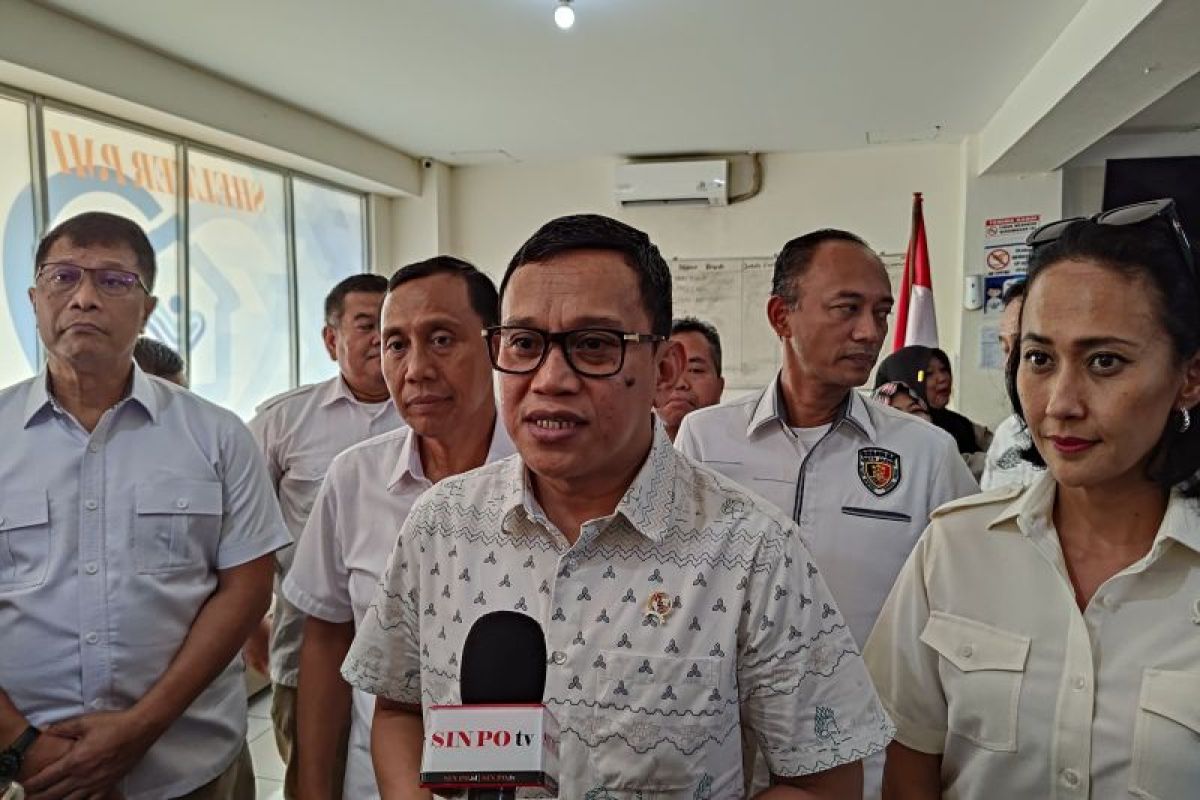Headline: Indonesian Government Considers Lifting Moratorium on Migrant Workers to Saudi Arabia
Tangerang (ANTARA) – In a proactive step towards potentially reinstating the flow of Indonesian migrant workers to Saudi Arabia, the government is currently reviewing the longstanding moratorium on sending workers, particularly for domestic roles. This decision comes in light of increasing interest from Indonesian nationals seeking employment in the Middle East, alongside concerns of labor smuggling and worker protections.
Government’s Ongoing Evaluation
On Saturday, Migrant Workers Protection Minister Abdul Kadir Karding addressed the ongoing evaluation of the moratorium during a press briefing. “For the moratorium (on sending Indonesian workers) to Saudi Arabia, we are still reviewing and evaluating it,” Karding stated. This statement underscores the government’s commitment to carefully consider the implications and operational aspects of resuming worker placements in the region.
The minister highlighted that reopening the migration pathway is crucial as many individuals continue to seek work in Saudi Arabia through undocumented channels. “It must be reopened because if it is not opened, they will still leave (as non-procedural workers). Hence, we consider reopening it, but with stricter rules,” he remarked.
New Regulations on Employment Standards
To ensure the safety and rights of Indonesian migrant workers, the Ministry of Manpower is in the process of finalizing new regulations that will govern the employment systems. Karding emphasized that these regulations will include established procedures and provisions, such as a minimum wage, which is set at 1,500 riyals, approximately Rp7.5 million. This wage framework aims to protect workers from exploitation and to provide a transparent working environment.
Cultural and Spiritual Aspirations
Beyond the financial incentives, many Indonesian migrant workers express a deep cultural and spiritual desire to work in Saudi Arabia. Karding pointed out that for many Muslims, an opportunity to pray in revered locations like Medina or Mecca represents a significant personal aspiration. "Many Muslims think that to be able to pray in Medina or Mecca is (an) extraordinary (experience). That is the main aspiration of Indonesians to go to Saudi Arabia," Karding added, highlighting the cultural draw that underscores the desire of many Indonesians to work in the Kingdom.
Background on the Moratorium
The decision to impose the moratorium dates back to 2015 when Indonesia enacted a ban on sending workers to 19 Middle Eastern countries, including Saudi Arabia, the United Arab Emirates, and Qatar. This ban was a response to numerous reports of abuse and maltreatment faced by Indonesian workers employed in private households in these nations. The government’s re-evaluation of the moratorium reflects an evolving approach aimed at balancing international labor opportunities with safeguarding worker rights.
Industry Implications
The potential lifting of the moratorium could have far-reaching implications for various stakeholders, including the Indonesian economy, labor market, and the personal lives of prospective migrant workers. By re-establishing formal pathways for labor migration, the government aims to curtail human trafficking and labor exploitation while providing valuable job opportunities for its workforce.
As Karding noted, some Indonesians view working abroad not just as a source of income but as an opportunity for spiritual growth and fulfillment. This cultural dimension adds layers of complexity to the migration debate, asserting the need for a balanced, well-regulated approach.
Next Steps and Future Outlook
As the Ministry of Manpower proceeds with regulatory considerations, there are several steps that the government must undertake to ensure a successful and safe placement of domestic workers in Saudi Arabia. These include:
- Finalizing the regulatory framework governing worker placements.
- Establishing clear processes for recruitment and employment standards.
- Implementing strict monitoring and enforcement protocols to protect workers’ rights.
The government’s proactive stance in reviewing the moratorium signals a willingness to adapt to the evolving needs of its citizens while upholding worker rights and protections.
For further updates on labor migration policies and opportunities within the Middle East, readers are encouraged to follow our website and explore more related articles.
In light of these developments, what are your thoughts on the proposed lifting of the moratorium? How do you feel this will affect Indonesian workers and their families? Share your opinions and experiences in the comments below.
Image HTML Tags:
<img src="image-source.jpg" alt="Indonesian Workers in Saudi Arabia" />This article has been crafted to provide comprehensive coverage with a focus on the Indonesian government’s potential policy changes regarding migrant workers to Saudi Arabia.

